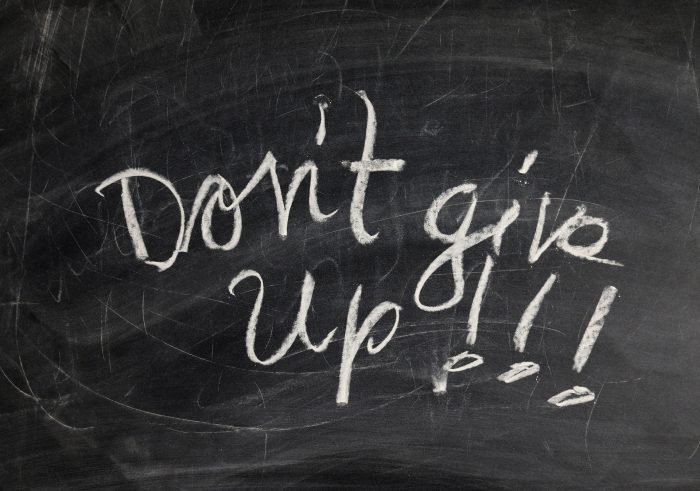Years ago, I came across a brilliant article by Jennifer Crusie. It was a writerly advice type article with a simple message, stop worrying about what everyone else is doing and write your book.
It’s excellent advice. Now, quit reading this already and go write your book.
No? Okay, then prepare yourself for some advice I wish I’d received when I first started this writing gig.
It takes time
I’ve been writing stories since primary school, but I didn’t get serious about it (aka. make a living from writing) until my early 30s, which, depending upon when you’re reading this, is at least eight years ago.
Here’s the kicker, I spent all that time figuring out how the fruitcake to do this writing thing, and I’m pretty sure that, in 20 years’ time, I’ll still be figuring it out.
It’s not that putting words on a page is hard, anyone can write a shopping list. It’s the getting out of your own way that’s tricky. Silencing the inner critic, developing confidence, building good habits, writing faster, writing every day. These things take time and (get ready for another kicker) no one can do it for you.
Sucks, don’t it?
But guess what? Fixing it’s so easy, it’s hard.
Stop worrying about all the shit holding you back and go write your book.
There are no shortcuts
Well ok, so there’s one shortcut. It’s really simple. Stop looking for shortcuts. No. Seriously. STOP.
It’s hard, I know. In fact, you’re probably reading this post hoping for a kernel of wisdom to speed you on the way to bestseller-dom. You might not even realize that’s what you’re looking for, that all those books and templates and character sheets (all helpful in their own right) are your search for something to make this writing gig easy.
I did it (witness my plethora of ever-popular writing templates) and I know others who have done it too. It took me awhile to realise that was what I was doing and longer to figure out that this writing shit was hard and the only person who could help me make it any easier was me. It was liberating and kinda scary, but I have this bullheaded optimism (aka. stubborn determination), and success was, and remains my only option (and I have a very nice bird for anyone who tries to tell me different).
Stopping my search for the magic bullet (aka. a shortcut) let me refocus my energy on more important things. Like writing.
Now, stop looking for shortcuts and write that book!
However, there are tools
But, like any tool, first you have to figure out how to use them. And when I say ‘use them’, I’m not just referring to the on switch; how they fit into your writing process is important too.
One such tool is Write or Die by Dr. Wicked. It’s designed to make you stop agonising over word choices, plot holes, inconsistencies and all of those other pesky things that can have you staring at a blank page/screen for hours on end. It works for many people, allowing them to write thousands of words per day, but for every person it works for, there are others it doesn’t.
I first tried Write or Die back in 2014 while I was writing Riven. It was a frustrating, anxiety-filled experience, and I stopped using it after my second attempt left me staring at a flashing red screen while an air horn blared from my speakers. I just couldn’t switch off the inner critic and the consequences of not keeping up with Dr Wicked’s words per minute (flashing lights and sound effects) weren’t helping me kick that monster to the curb.
Fast forward a few years and (because I’m me and can’t leave well enough alone), I gave Write or Die another go. Lo-and-behold, it worked! The flashing lights and air horns no longer freaked me out, instead they reminded me to get typing (just like they’re supposed to) and stop to overthinking things. As a result, I started writing faster. (For those of you who like numbers, my average word count went from 200 words in 30 minutes to 450 words in 20 minutes).
Why did it work now and not four years ago? It worked because somewhere in those four years, I’d crushed my inner critic and gained confidence in my ability to put a story together. It took time, practice and patience. It took writing three books, bashing my head against a wall and stubborn determination. Lots and lots of determination.
So pull on your real writer undies and go write that damned book.
Writer’s block is not the Bogeyman
That subheading was going to read ‘writer’s block is a myth’, but that would mean I couldn’t use the words ‘writer’ or ‘block’ in the same sentence and they’re such great words for describing that thing, that blockage where the words won’t come. Instead, I’ll tell you that writer’s block as you know it (aka. the Bogeyman), is a myth.
To say I get asked how I deal with writer’s block at lot would be an understatement. It seems to be the question on every new and new-ish writer’s mind–I know, because back when I still believed in the writer’s Bogeyman, it was on mine.
When you’re starting at the screen or the page and the words won’t come, it’s not because the Bogeyman is holding your creativity hostage. It’s your subconscious telling you that something about this story isn’t working. (It could also be burnout, which isn’t a myth, and requires a different post, but for the moment we’re assuming it’s your subconscious.)
Your subconscious is a lot smarter than your conscious mind, when it comes to stories. It’s been learning what makes a good story from the time you first opened your ears, and when it sees you making a mistake, it throws up a red flag. Unfortunately, your subconscious is crap at communicating so it doesn’t give you any more information, it’s the job of your conscious mind to figure it out.
Listen to your subconscious and write that blasted book.
Do it your way
Here’s the thing about writing; everyone does it differently. I guess that’s why it takes so long to learn.
Read all the writing books and blogs you like, listen to all the podcasts, go to all the conferences and cherry pick the tips, tricks and techniques that resonate with you. Then apply them to your writing practice, see how they work or don’t work, adapt them, mix them up and make something new.
How you write will change as you do, evolving, sometimes regressing as you experiment with what you’ve learned, but always responding to your needs. If it doesn’t, then change it. Right now.
Go. Write. Your. Book.
So that’s my advice, what I wish someone had told me when I first started out as a writer. Whether or not I would have listened is a whole other kettle of fish.
Now that you’ve spent ten minutes reading this, go write your book.
Featured image by Gerd Altmann from Pixabay.

